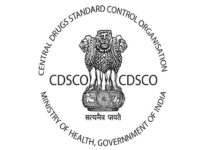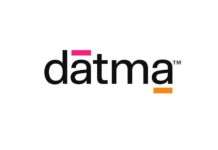Merck, known as MSD outside the United States and Canada, announced that the U.S. FDA has approved a supplemental New Drug Application (sNDA) for RECARBRIO for the treatment of patients 18 years of age and older with hospital-acquired bacterial pneumonia and ventilator-associated bacterial pneumonia (HABP/VABP), caused by the following susceptible Gram-negative microorganisms: Acinetobacter calcoaceticus-baumannii complex, Enterobacter cloacae, Escherichia coli, Haemophilus influenzae, Klebsiella aerogenes, Klebsiella oxytoca, Klebsiella pneumoniae, Pseudomonas aeruginosa and Serratia marcescens. To reduce the development of drug-resistant bacteria and maintain the effectiveness of RECARBRIO and other antibacterial drugs, RECARBRIO should be used only to treat or prevent infections that are proven or strongly suspected to be caused by susceptible bacteria. RECARBRIO is contraindicated in patients with a history of known severe hypersensitivity to any component of RECARBRIO. See Selected Safety Information below.
“Hospital-acquired infections continue to be a significant cause of illness and death despite advances in our understanding of the contributing factors and prevention of these diseases,” said Dr. Keith Kaye, professor of medicine and director of research for the division of infectious diseases, University of Michigan Health System, and a principal investigator in the clinical program. “Because these infections are often caused by difficult to treat Gram-negative organisms, new therapeutic options such as RECARBRIO are urgently needed for patients.”
RECARBRIO is a combination of imipenem, a carbapenem antibacterial, cilastatin, a renal dehydropeptidase inhibitor, and relebactam, a beta-lactamase inhibitor. Relebactam protects imipenem from degradation by certain serine beta-lactamases such as SHV (Sulfhydryl Variable), TEM (Temoneira), CTX-M (Cefotaximase-Munich), P99 (Enterobacter cloacae P99), PDC (Pseudomonas-derived cephalosporinase), and KPC (Klebsiella-pneumoniae carbapenemase).
The additional indication in HABP/VABP is based on results of the pivotal Phase 3 RESTORE-IMI 2 trial that compared RECARBRIO 1.25 grams (imipenem 500 mg/cilastatin 500 mg/relebactam 250 mg) to piperacillin/tazobactam 4.5 grams (PIP/TAZ, piperacillin 4000 mg/tazobactam 500 mg), each administered intravenously every six hours for seven to 14 days, for the treatment of adult patients with HABP/VABP. RECARBRIO met the primary and key secondary endpoints, demonstrating non-inferiority to PIP/TAZ in 28-day all-cause mortality and clinical response at early follow-up, respectively. The RESTORE-IMI 2 study abstract was published by the 30th European Congress of Clinical Microbiology & Infectious Diseases (ECCMID).
“At a time of great public health concern about the need for new treatments to meet the evolving challenges posed by Gram-negative bacteria, we are proud to continue bringing new therapeutic options to health care practitioners in an effort to help them overcome the challenges in patient care,” said Dr. Nicholas Kartsonis, senior vice president, clinical research, infectious diseases and vaccines, Merck Research Laboratories. “Today’s approval is further affirmation of Merck’s steadfast commitment to meeting the needs of the health care community.”
RECARBRIO is also indicated in adults who have limited or no alternative treatment options for complicated urinary tract infections (cUTI), including pyelonephritis, and complicated intra-abdominal infections (cIAI) caused by susceptible Gram-negative bacteria, as described below. RECARBRIO is administered via intravenous injection.
About Merck
For more than 125 years, Merck, known as MSD outside of the United States and Canada, has been inventing for life, bringing forward medicines and vaccines for many of the world’s most challenging diseases in pursuit of our mission to save and improve lives. We demonstrate our commitment to patients and population health by increasing access to health care through far-reaching policies, programs and partnerships. Today, Merck continues to be at the forefront of research to prevent and treat diseases that threaten people and animals – including cancer, infectious diseases such as HIV and Ebola, and emerging animal diseases – as we aspire to be the premier research-intensive bio-pharmaceutical company in the world.


















